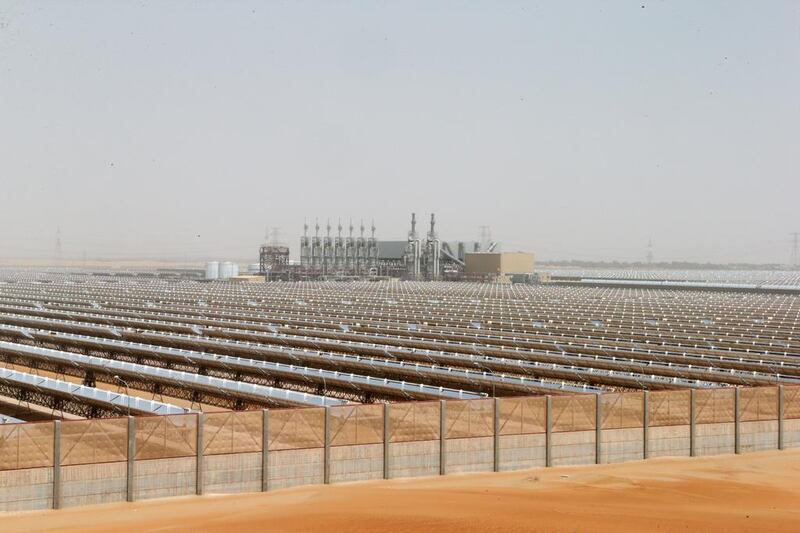On June 1, just days after his first official visit to the Middle East and Europe, Donald Trump announced that the United States would withdraw from the 2015 Paris climate accord. By ending US commitment to reduce its greenhouse gas emissions by up to 28 per cent below 2005 levels by 2025, Mr Trump broke a promise that nearly every other government in the world has kept – one popular with policymakers, business leaders and the general public, and one that could ensure a better future for mankind. Such a move is likely to weaken Washington’s leadership on a fundamental issue affecting the future of our planet. The US now finds itself in the company of countries such as Syria and Nicaragua, which are also not signatories to the accord.
Mr Trump’s decision forced many local officials, policymakers, non-state actors, businessmen and companies to position themselves on this debate, and also further galvanised consensus on climate change. China, the world’s biggest emitter, India, which is expected to experience some of the fastest emission growth in the coming decades, and the European Union have all jumped in to fill the leadership void created by Mr Trump’s decision.
The fact that more nations have not come out strongly against Washington’s withdrawal from the accord, however, has sparked fears that some countries might now feel discouraged to ramp up their own efforts to cut back greenhouse gas emissions, or, worse, might themselves withdraw from the Paris agreement. A first step in that direction was the decision by Russia – the fifth-largest emitter of greenhouse gases – to delay the ratification of the Paris agreement until January 2019, after the 2018 Russian presidential election.
Any other withdrawal from the Paris climate accord will affect the goal of containing global warming to the +2° Celsius threshold.
In fact, the US withdrawal could raise global emissions by 3 per cent, and could add up 0.3°C to global temperatures by the end of the century, in the worst-case scenario. Any further withdrawal from the Paris agreement could lead to more drought, famine, refugee flows, political instability, and conflict. The remaining countries, therefore, must come together, strengthen their efforts and deepen their emission cuts in a joint effort to cap the rise of global temperatures.
The UAE, which has the world’s sixth-largest oil reserves and fifth-largest natural gas reserves, is already way ahead in its efforts to combat climate change.
The country is home to the world’s first sustainable city, Masdar, the largest solar energy project, Shams 1 and the International Renewable Energy Agency. The UAE is now developing what will be the largest independent solar plant, Noor Abu Dhabi, as well as its first nuclear energy plant, Barakah. It has ambitious plans to boost clean energy and slash dependence on natural gas. It aims to curb carbon dioxide emissions by 70 per cent, increase clean energy use by 50 per cent and improve energy efficiency by 40 per cent by 2050.
Mr Trump’s decision represents a considerable opportunity for the UAE to lead by example, and encourage other regional oil producers to carry the torch of climate action and climate innovation. The country can contribute to unlock new avenues of technological development and knowledge sharing with global, local and regional actors. The UAE may also be in a position to replace financial incentives the US had to offer to developing countries in the region and those most vulnerable to climate change such as Yemen, Somalia and South Sudan. It could become a hub of energy innovation in the region.
As the former US president John Kennedy once said, the word “crisis”, when written in Chinese, is composed of two characters: one represents danger, and the other opportunity. The US withdrawal from the Paris agreement might be cataclysmic if we do not act. It could also be a wake-up call for the rest of the world to speed up efforts to fight climate change, and for the UAE to lead the change in the region and beyond.
Mylene Tisserant is a senior analyst at the Delma Institute, an international affairs research house located in Abu Dhabi





